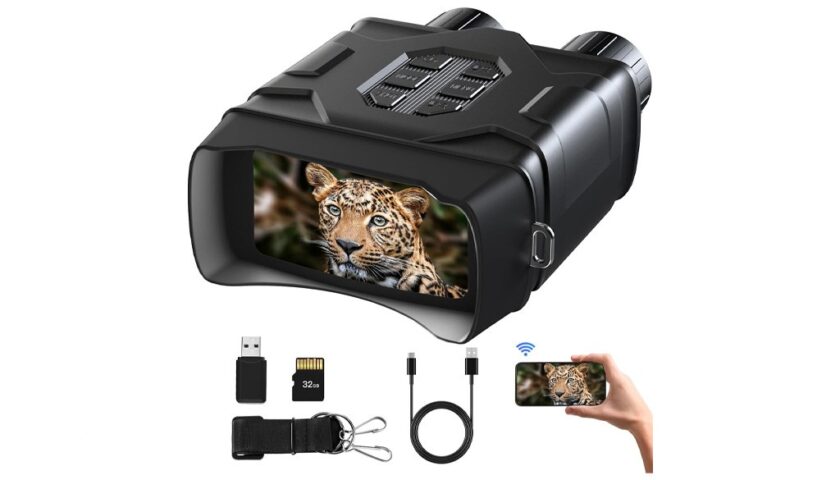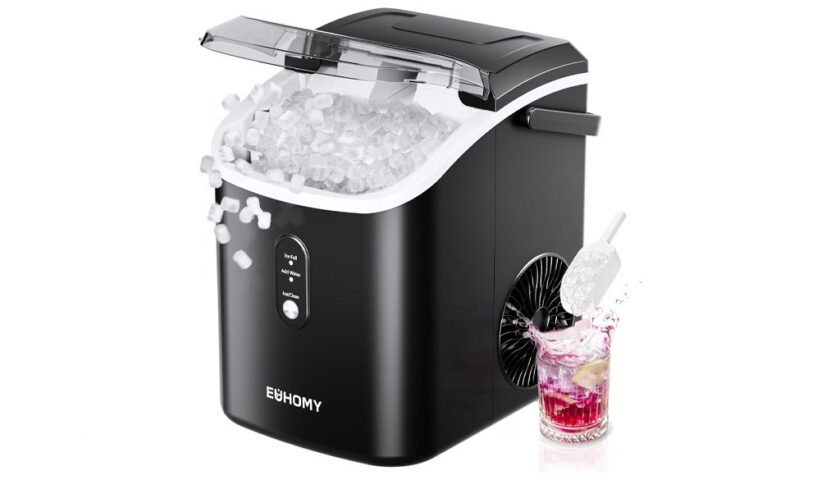Which RV cover is best?
Whether you live in your RV or take it on the road for adventures a few times a year, it is an investment. An RV cover is designed to protect your RV from all sorts of weather conditions. There are a variety of natural forces that can harm your RV. Ultraviolet rays can wear down your RV over time, causing paint to fade, peel and even expose the metal underneath. Wind carrying rocks, twigs and other debris can beat against and damage the surface of your RV. Dust and dirt can build up, causing damage to the ventilation system, clogging the gutters and damaging the finish.
There are as many types of RV covers as there are RVs, so it is important to find the right one for your recreational vehicle. For a durable, feature-packed option, consider the RVMasking Heavy Duty 7-Ply 5th Wheel RV Cover.
What to know before you buy an RV cover
RV Type
Most RV covers are designed to fit specific types of vehicles, so it’s important to know what type your RV is and how it will be described in product descriptions. For example, a cover designed for fifth wheels does not work on a travel trailer, and a class-A motorhome needs a different fit than an Airstream.
Size
Determine your RV’s size. Measure carefully and double-check those measurements, as RV covers are designed to fit fairly exactly. Most size guides include height, length and width. For height, measure from the middle wheel to the top of the roof. For length, measure from bumper to bumper. For the width, measure both the width of the rear bumper and the front windshield. If there is any discrepancy between your RV and the product size, opt for a size up rather than a size down.
What to look for in a quality RV cover
Material
Most RV covers are made from polyester, polypropylene, polyethylene or solution-dyed acrylic. The best material for protecting your RV largely depends on your climate.
- Polyester: These covers provide excellent ultraviolet protection, making them ideal for hot and dry climates. They do provide some water protection, but not all polyester covers are treated for water, so check before purchasing.
- Polypropylene: This highly durable material is resistant to fatigue, cracking and acid damage, and has a natural level of water resistance. If you live in a wet climate make sure the RV cover is layered or coated to prevent moisture from seeping through.
- Polyethylene: This material is similar to polypropylene in that it is strong and resistant to tears. The main difference is that it has a high-density nonporous surface, making it significantly more resistant to water. It does still allow air to pass through, preventing mildew growth. This material is a perfect choice for wet and rainy conditions.
- Solution-dyed acrylic: This type of fabric is made with special dyes resistant to ultraviolet rays, making it ideal for sun protection. RV covers of this material typically have waterproof coatings, allowing them to be good options for most types of weather.
Weatherproofing
Regardless of the main material, some covers have waterproofing coats and others do not. The same thing is true of ultraviolet protection, so depending on what climate you expect to be in, keep an eye out for extra protection against the weather in that area.
Air vents
If your cover doesn’t have any ventilation, then any air that gets inside will cause billowing, which can potentially cause tearing and even loosen buckles. Air vents allow wind to pass through and escape, solving this problem. Ventilation allows the fabric to breathe, keeping moisture from getting trapped in and causing mildew.
Zippered door panels
Door panels aren’t so much a protection feature as a convenience feature. If your cover has zippered door panels, you can get in and out when your RV is covered. If your particular cover is difficult to get on and off, this feature prevents that hassle during maintenance.
How much you can expect to spend on an RV cover
Depending on size, material and features, an RV cover can cost between $50 and $500. The cheaper the cover, the worse the protection. For most consumers, a cover between $200 and $400 is the best option for long-term protection.
RV cover FAQ
Can you use a regular tarp?
A. A lot of people use tarps to cover their RVs, but it isn’t advised. While a tarp is better than nothing, it does very little compared to an RV cover. Most tarps tend to be abrasive, so they can damage your exterior. Tarps aren’t well ventilated, so air and moisture can get trapped and cause mildew. If you want to properly care for your RV, go with an RV cover.
How should you store an RV cover when it’s not in use?
A. Make sure it is completely dry before storing it because moisture could cause mold or mildew. Many covers come in neatly packed storage bags, although it can be difficult if not impossible to get the cover to fit in the bag in which it came. If you want a simple way to store your RV cover, use a large, clean trash can. Simply fold your cover and place it and its accessories in the trash can, cover with the lid, and keep it in a garage or other sheltered place until you’re ready to use it again.
Will an RV cover keep pests out?
A. It helps, but there is no way to guarantee that determined critters and insects won’t find a way in. It’s a good idea to periodically check inside the cover for unwelcome guests.
What’s the best RV cover to buy?
Top RV cover
RVMasking Heavy Duty 7-Ply 5th Wheel RV Cover
What you need to know: This heavy-duty, feature-packed RV cover is among the most durable products on the market.
What you’ll love: This tough cover is made of seven layers for extra durability. It has eight air vents to prevent mildew. This tightly fitting cover is equipped with elasticized corners, waterproof straps and buckles, and adjustable panels in the front and rear. It comes with four wheel covers, a storage bag and a repair patch.
What you should consider: Some users complained the color fades over time. This cover is quite heavy due to its durable construction.
Top RV cover for the money
ADCO 52245 Designer Series SFS Aqua Shed Travel Trailer RV Cover
What you need to know: This well-constructed cover is a great choice for cooler climates, especially those with high moisture and moderate sun exposure.
What you’ll love: This sleek-looking cover is equipped with a secure strapping system, convenient zippers, reinforced buckles and flaps, multiple zipper entry doors and more. It includes built-in vents that allow air to escape during moderate winds, a buckle-cinching system that prevents billowing and gutter-spout protectors that prevent cover puncture.
What you should consider: This RV cover sometimes runs small, so measure carefully.
Worth checking out
Leader Accessories Travel Trailer RV Cover
What you need to know: An excellent value, this sturdy RV cover doesn’t feel cheap.
What you’ll love: Durable and adjustable, this RV cover holds up to the sun, heat, rain and high winds. It is equipped with a variety of straps and zippers, adjustable front and rear tension panels and elasticized hems to keep it in place even in high winds. The air vent system reduces wind stress and inside moisture.
What you should consider: It is not easy to install by yourself, so grab a friend.
Prices listed reflect time and date of publication and are subject to change.
Check out our Daily Deals for the best products at the best prices and sign up here to receive the BestReviews weekly newsletter full of shopping inspo and sales.
BestReviews spends thousands of hours researching, analyzing and testing products to recommend the best picks for most consumers. BestReviews and its newspaper partners may earn a commission if you purchase a product through one of our links.
Distributed by Tribune Content Agency, LLC.





